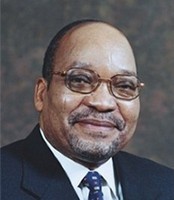Given the pressures that globalization generates for individual states, regions have obvious incentives to develop their cooperation in the economic field. Equally, given the costs of conflict, there is a compelling argument for regions to develop effective mechanisms for conflict management. Although these lessons apply to all regions, in Southern Africa the process of regional cooperation has been viewed more skeptically, mainly because the obvious disparities of power between South Africa and its neighbors raise the question of whether a more balanced and equitable set of regional relationships can be achieved. Though this is certainly a valid concern, it ignores any appreciation of the potential costs to Pretoria from closer regional cooperation.
In particular, regional cooperation at the political level in Southern Africa is jeopardizing the values that originally underpinned South African foreign policy and is likely to kill off the aspiration that the country can act as a champion of democratic values in the subregion. More ominously, should the country's foreign policy continue on its present course, it risks impacting upon the quality of South Africa's own democracy.
Academics such as Laurie Nathan have argued that within the Southern African Development Community (SADC) there is an absence of shared values underpinning regional cooperation, and in particular a lack of the democratic "sameness" among states that has characterized such processes elsewhere. The SADC embraces various regime types: fragile democracies, illiberal democracies, klepotocracies, partially authoritarian regimes and outright tyrannies. While it has a policy of suspending the membership of states where a military coup has supplanted civilian government, it has no clear position on other forms of authoritarian rule or situations where nominally democratic governments have subverted the democratic process, as in Zimbabwe.

